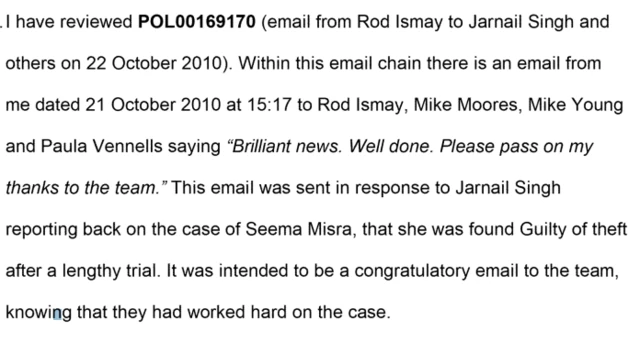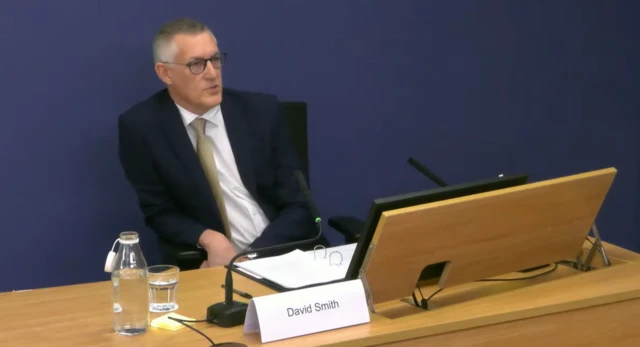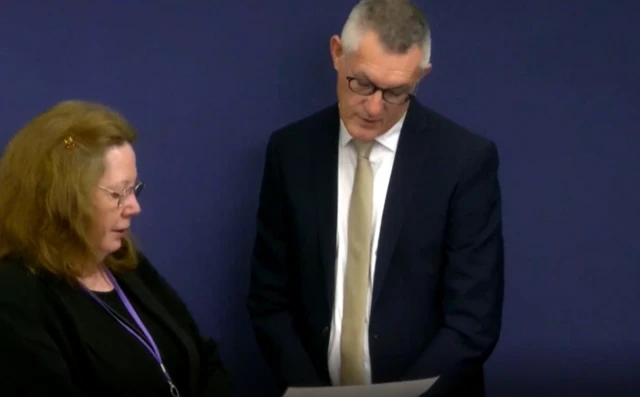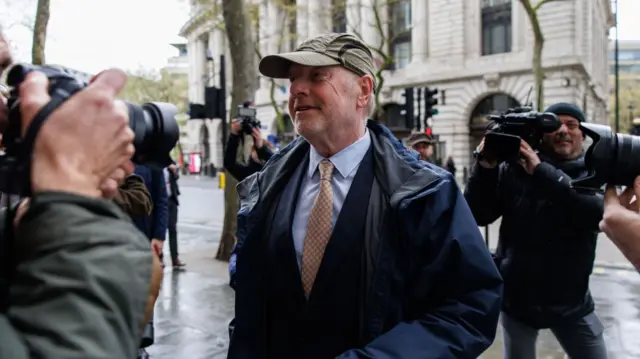Smith asked about email raising concerns over Horizonpublished at 11:25 BST 11 April 2024
David Smith is also being asked about an email which detailed a meeting where concerns were raised about the Horizon system.
In the message, Smith is quoted as saying that he was keen for an independent review of the system to see whether it was "genuinely up to it".
He says under questioning that it was unlikely Fujitsu would agree to the review, admitting that "we wouldn't have done in reverse".
Smith adds that the suggestion was made by the Post Office as it was "looking for ways to get the product to where it needed to be as quickly as possible".
Smith says he was looking for ways to ensure that the Horizon system was up to the task, before the new version was set live. If not, they would have returned to the old system, he adds.




